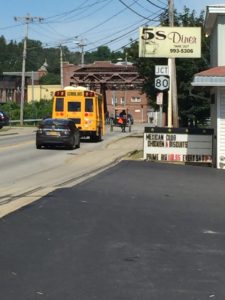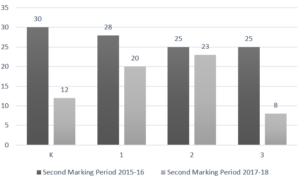Research-Practice Partnership: Building Will and Capacity for Improvement in Rural Communities
BY Kristen Wilcox, Director of Research and Development for NYKids
While rural students continue to achieve on par with their peers in suburban and urban contexts on a number of outcome measures, achievement gaps and inequitable opportunities for learning are still the experience of too many of the nearly nine million youth living in rural communities across the United States (see Why Rural Matters Report).
This includes the students of rural Fort Plain Central School District (FPSCD), the site of a multi-year Research-Practice Partnership (RPP) headed up by the NYKids Project and in collaboration with the Capital Area School Development Association CASDA.

Improvement Science to Improve Student Outcomes
Using improvement science-based (see Carnegie Foundation for the Advancement of Teaching) processes and tools (called COMPASS-AIM) with NYKids odds-beating school research the Research-Practice Partnership has delivered results.
Case in Point #1
The Junior-Senior High School Fort Plain COMPASS team identified as a top priority improving their interventions to decrease the number of students needing summer school. After testing change ideas (a key part of improvement science methods) such as implementing an Academic Coaching Center, summer school participants dropped to zero.
Case in Point #2
At the elementary school, the COMPASS team prioritized improving literacy instruction and they achieved a reduction in the numbers of students receiving Tier 2 interventions by way of embedding reading teachers in literacy blocks and providing embedded PD in reading for all teachers.

Research-Practice Partnerships using improvement science processes and tools can help build a district-wide commitment to continuous improvement processes oriented to shared goals, mechanisms for teacher collaboration focused on school-wide improvement, and competence in using evidence-based processes. Look for more on this research in the next issue of The Rural Educator.
